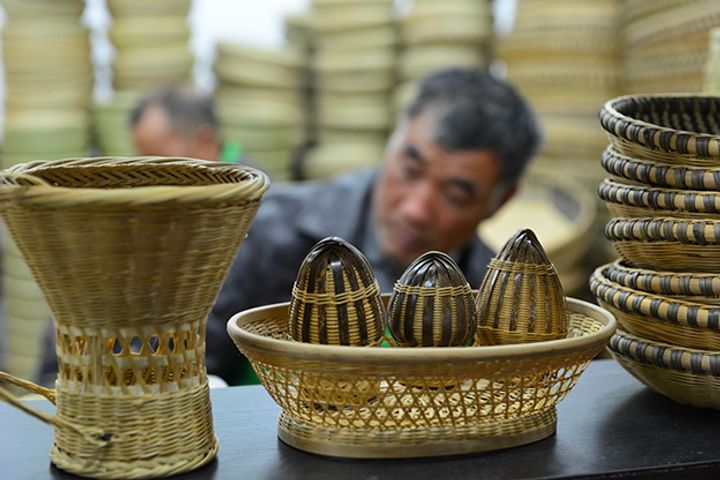 Bamboo Can Become Substitute for Iron, Steel As Its Composite Pressure Material 'Walks In Forefront of Science, Technology'
Bamboo Can Become Substitute for Iron, Steel As Its Composite Pressure Material 'Walks In Forefront of Science, Technology'(Yicai Global) Nov. 14 -- Many people have used bamboo chopsticks, sat on bamboo benches and seen baskets, crates, shoulder poles, brooms and houses made of bamboo, but they may have never seen bamboo pipes, bamboo high-speed carriages and bamboo aircraft fuselage.
As a new product which can replace steel, high strength plastics and other materials, bamboo composite pressure material is walking in the forefront of science and technology. And those villages rich in bamboo resource, even the poor mountainous areas, may turn into production bases for the new, green, environmentally friendly and renewable "steel" material.
"Bamboo filament-wound composite material will become another basic building material after steel and cement, and also a new type of bio-based composite material after fiber-reinforced materials such as metal and plastics," said Ye Ling, director of bamboo filament-wound composite material engineering and technology research center affiliated with China's state forestry administration, at the 2017 International Innovation Forum for Efficient Utilization of Bamboo Resources.
Ye Ling said that as the representative of bamboo technology, bamboo composite material embodies the cutting-edge technology in this field. China has produced bamboo fiber-reinforced filament-wound pipes, which are the first bio-based pipes capable of industrialization in the world as well as China's only original pipe with apparent advantages in terms of pressure capacity, insulation performance, service life and low manufacturing cost. At present, China is running a comprehensive test of the performance of bamboo filament-wound composite carriages.
Bamboo composite material is a new bio-based material with bamboo as the base material, resin as adhesive, and winding technique as way of processing. Ye Ling explained that bamboo composite material gives full play to the characteristics of the high axial tensile strength of bamboo and can be widely used as an ideal substitute for steel, cement, plastics and other materials of high pollution and high energy consumption as it has outstanding performance in pressure-bearing, shock and settlement resistance, corrosion resistance, insulation and cost-effectiveness. The cost of bamboo filament-wound composite pipes is about 80-90 percent of ductile iron pipes and 60-70 percent of plastic ones.
China has 6.01 million hectares of bamboo forest and its bamboo industry posted a total annual output of CNY210.9 billion (USD31.7 billion) in 2016. China also leads the world in bamboo resources reserve, industrial development and scientific research level. It is the main technological cradle of global bamboo industry and the headstream of world's new bamboo products and innovation.